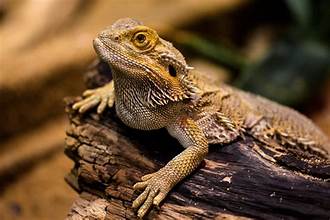So, you’ve welcomed a unique creature into your home – a reptile with captivating scales, a vibrant bird with a melodic call, or a small mammal with curious eyes. While you’ve diligently researched their dietary and environmental needs, have you considered their social needs? Often overlooked, the social lives of exotic pets are just as crucial to their overall well-being as proper heating or the right substrate. Ignoring these needs can lead to stress, behavioral problems, and a diminished quality of life for your fascinating companion.
What Exactly Are Social Needs in Exotic Pets?
Like humans, many animals sometimes have inherent needs for interaction, companionship, and even solitude. For exotic animals, these needs are deeply rooted in their natural behaviors in the wild. Understanding their species-specific social structures is paramount for providing appropriate care in captivity.
Some exotic pets are naturally solitary creatures in the wild. Forcing them to live with tank mates can lead to stress, aggression, fighting, and even injury or death. Examples include many species of reptiles like leopard geckos, bearded dragons (adults generally do better alone), and certain snakes. Some amphibians and invertebrates are also solitary. Providing ample space, hiding places, and ensuring no forced interaction is key for these individuals.
- Social Species:
Conversely, many exotic mammals, some birds (like cockatiels and budgies), and even certain reptiles and amphibians thrive in the company of their kind. Keeping social animals alone can lead to loneliness, depression-like behaviors, and a lack of natural stimulation.
- Pair-Bonding Species:
Some exotic birds and certain mammals form strong pair bonds in the wild. These animals often do best when kept with a compatible mate, and separating bonded pairs can cause significant distress.

- Species with Complex Social Hierarchies:
Sure, exotic pets, like some primates (generally not recommended as pets due to their complex needs and potential dangers) or larger groups of social rodents, have intricate social structures with established hierarchies. Replicating these dynamics in captivity can be challenging and requires expert knowledge and ample space.
Why are Social Needs Important for Exotic Pet Welfare?
Meeting the social needs of your exotic pet is not just about preventing loneliness; it’s crucial for their overall well-being:
- Reduced Stress:
Companionship can significantly reduce stress levels for social animals, while the absence of unwanted interaction prevents stress for solitary animals.
- Natural Behavior Expression:
Social animals behave naturally, grooming, playing, and communicating with their conspecifics, which are individuals of the same species. Solitary animals need environments that allow for natural solitary behaviors, like hunting or exploring.

- Improved Mental Health:
Proper social interaction contributes to better mental stimulation and can prevent boredom and depression-like states.
- Enhanced Physical Health:
Chronic stress due to unmet social needs can weaken the immune system and make your exotic pet susceptible to illness.
How to Determine the Social Needs of Your Exotic Pet:
The most critical step in understanding and meeting the social needs of your exotic pet is thorough research before acquiring any exotic animal. This research will inform you about your pet’s specific social needs and prepare you for ownership responsibilities.
- Species-Specific Research:
Understand the natural social behavior of the specific species you are interested in. Reputable books, online resources from experienced keepers and breeders, and scientific literature can provide valuable insights.
- Observe Wild Populations:
Learn about how the species lives in its natural habitat. Do they live in group pairs, or are they primarily solitary? You can do this by watching documentaries, reading scientific studies, or visiting zoos or wildlife sanctuaries where the species are kept in conditions that mimic their natural habitat.
- Consult Experts:
Talk to experienced keepers, breeders, and exotic animal veterinarians. They can offer practical advice based on their knowledge and observations.
Practical Considerations for Meeting Social Needs:
Once you understand your exotic pet’s social requirements, you can take steps to meet them:
- Appropriate Housing:
For social species, provide enclosures large enough to comfortably house the required number of individuals and ample space for them to establish their territory if needed. Ensure enough resources (food and water stations, hiding spots) to prevent competition.
- Careful Introduction:
When introducing new individuals to a social group, do so slowly and under careful supervision to minimize aggression.
- Observation:
Monitor your exotic pets for signs of stress, aggression, or illness. Attentive care is crucial for meeting their social needs and ensuring their well-being.
- Enrichment for Solitary Animals:
Just because an animal is solitary doesn’t mean it doesn’t need stimulation. Provide a complex and enriching environment with opportunities for exploration, hiding, and natural behaviors.
- Avoid Forced Interaction:
Never force interaction between naturally solitary animals or show signs of aggression towards each other.
In Conclusion, Understanding and meeting the social needs of your exotic pet is not just a responsibility but a source of joy and fulfillment. Whether your unique companion thrives in solitude or with a group, providing the appropriate social environment is crucial for their physical and mental well-being. By researching, observing your animal, and providing thoughtful care, you can ensure your exotic pet leads a happy and fulfilling life in your home. Remember, a cage is just a physical space; their social world is what truly makes it a home.




